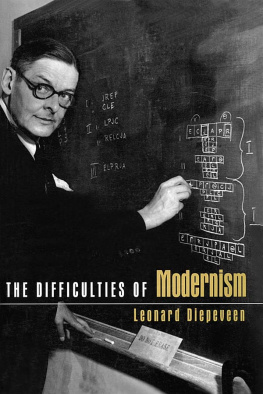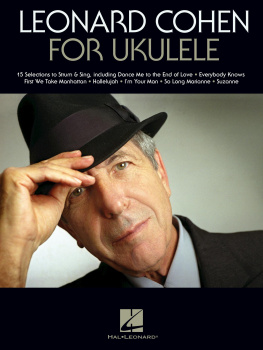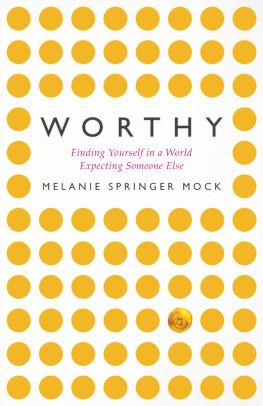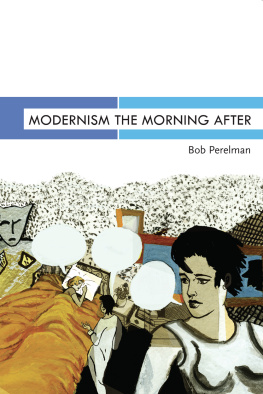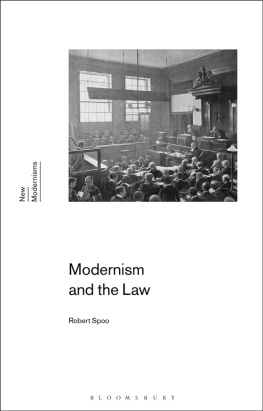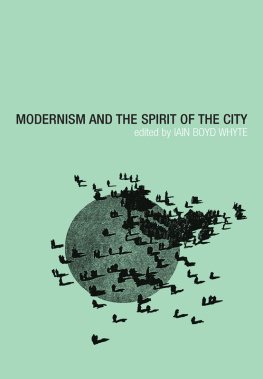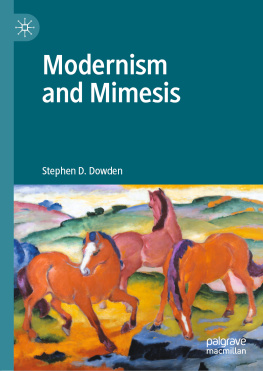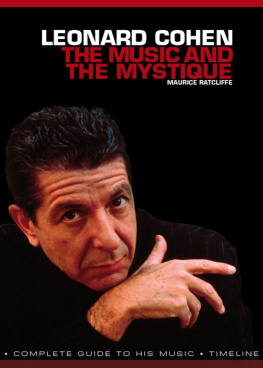Leonard Diepeveen - Mock Modernism
Here you can read online Leonard Diepeveen - Mock Modernism full text of the book (entire story) in english for free. Download pdf and epub, get meaning, cover and reviews about this ebook. year: 2014, publisher: University of Toronto Press, genre: Art. Description of the work, (preface) as well as reviews are available. Best literature library LitArk.com created for fans of good reading and offers a wide selection of genres:
Romance novel
Science fiction
Adventure
Detective
Science
History
Home and family
Prose
Art
Politics
Computer
Non-fiction
Religion
Business
Children
Humor
Choose a favorite category and find really read worthwhile books. Enjoy immersion in the world of imagination, feel the emotions of the characters or learn something new for yourself, make an fascinating discovery.

- Book:Mock Modernism
- Author:
- Publisher:University of Toronto Press
- Genre:
- Year:2014
- Rating:3 / 5
- Favourites:Add to favourites
- Your mark:
- 60
- 1
- 2
- 3
- 4
- 5
Mock Modernism: summary, description and annotation
We offer to read an annotation, description, summary or preface (depends on what the author of the book "Mock Modernism" wrote himself). If you haven't found the necessary information about the book — write in the comments, we will try to find it.
Mock Modernism — read online for free the complete book (whole text) full work
Below is the text of the book, divided by pages. System saving the place of the last page read, allows you to conveniently read the book "Mock Modernism" online for free, without having to search again every time where you left off. Put a bookmark, and you can go to the page where you finished reading at any time.
Font size:
Interval:
Bookmark:
MOCK MODERNISM
EDITED BY LEONARD DIEPEVEEN
An Anthology of Parodies, Travesties, Frauds, 19101935

University of Toronto Press 2014
Toronto Buffalo London
www.utppublishing.com
Printed in Canada
ISBN 978-1-4426-4482-3 (cloth)

Printed on acid-free, 100% post-consumer recycled paper with vegetable-based inks.
Library and Archives Canada Cataloguing in Publication
Mock modernism : an anthology of parodies, travesties, frauds, 19101935 /
edited by Leonard Diepeveen.
Includes bibliographical references and index.
ISBN 978-1-4426-4482-3 (bound)
1. Modernism (Literature) Press coverage. 2. Modernism (Literature) Public opinion. 3. Modernism (Art) Press coverage. 4. Modernism (Art) Public opinion. I. Title.
PN56.M54D543 2014 809.9112 C2013-908305-7
This book has been published with the help of a grant from the Canadian Federation for the Humanities and Social Sciences, through the Awards to Scholarly Publications Program, using funds provided by the Social Sciences and Humanities Research Council of Canada.
University of Toronto Press acknowledges the financial assistance to its publishing program of the Canada Council for the Arts and the Ontario Arts Council.

University of Toronto Press acknowledges the financial support of the Government of Canada through the Canada Book Fund for its publishing activities.
Permissions and credits follow on page 415.
Mock Modernism has been a cooperative enterprise. At an institutional level, Id link to thank the Social Sciences and Humanities Research Council of Canada as well as the Research Development Fund of Dalhousie University, both of which greased the financial wheels necessary to keep this project moving. The archival support for this project has been overwhelming. Im thinking, of course, of the Modernist Journals Project, which has made so much new modernist scholarship possible. As well, the Gertrude Stein collection at the Beinecke Rare Book and Manuscript Library at Yale has been an immense resource. Thanks, too, to the Chicago Public Library; the library of the University of Illinois; the Ryerson and Burnham Libraries of the Art Institute of Chicago; the British Library; and, for clippings related to the 1912 Postimpressionist exhibition, the Kings College Archive Centre of Cambridge University.
As for individuals, I owe much to the anonymous readers for the University of Toronto Press, who helped push this collection in some helpful directions. Some wonderful research assistants over time have helped moved this project along: Adam Bowes, Connor Byrne, Peter Chiykowski, Kelly Conway, and Adrien Robertson. And special thanks to Leslie Gallagher, who provided an especially keen set of working eyes at just the right time. Colleagues at Dalhousie University provided conversation and help with translations, particularly John Barnstead, Federica Belluccini, Melissa Furrow, Jason Haslam, Matt Huculak, Trevor Ross, and Julia Wright. Two people deserve special thanks: Timothy van Laar, for his continuing intellectual conversation and scrutiny; and to Richard Ratzlaff, whose belief in and excitement over this project has propelled it along.
The list of people who volunteered information and suggested sources is larger than I could accommodate, but Id like to thank, in particular, those who helped me track down texts, and who suggested material I had not been aware of: Rebecca Beasley, Jeremy Braddock, David Bradshaw, Jessica Burstein, Gregory Castle, Suzanne Churchill, John Xiros Cooper, Sarah Davison, Jonathan Greenberg, Michael Groden, Anne Gwin, Sharon Hamilton, Brian Holcomb, Matt Huculak, Dean Irvine, Karen Leick, Niall Munro, Lawrence Rainey, Stephen Rogers, Max Saunders, Robert Scholes, Jack Selzer, Hannah Sullivan, Oliver Walton, and Mark Wollaeger. Without these colleagues and the Modernist Studies Association this project would be much less rich.
Finally, Id like to thank Susan, for thirty-some years of friendship and grace. This ones for you.
MOCK MODERNISM
In late March of 1913 the International Exhibition of Modern Art arrived in Chicago from New York City, its New Yorksized scandal provoking Chicagos press corps to generate an even larger and more rambunctious reception. As the local press set to work on the Armory Show, laying the groundwork for what would indeed become a greater fracas than what had entertained New York for a few weeks, a curious convergence in early twentieth-century culture was becoming clear, a convergence in which P.T. Barnum could become the interpretive frame for the austere products of modernism, for the chilly pleasures of work like Marcel Duchamps Nude Descending a Staircase. Eyeing the baffling works of Picasso, Matisse, and Duchamp, and anticipating plausible modes of public interest for what was being called freak art, the Chicago Record-Herald plastered its 25 March edition with the large headline: Step In! No Danger! Cubist Show Now On. It followed this with:
La-d-ie-s and gentlemen, step closer, please, a little closer. Before visiting the palatial palaces of sculpture and art in other portions of this famous institute see the cubist sideshow the show they are all talking about.
Here, here, here we have the famous one-eyed lady, brought from the wildes of France; the human skeleton carrying a heliotrope owl and leading a camel with elephant ears; the horse with legs like a bullfrog; the greatest galaxy of normal and abnormal nudes ever assembled on this or any other continent.
Remember, this is the uncensored sho. Its there there there on the inside, ladies and gentlemen. Its continuous. Its different, and its art art of the present and the future. A thrill every minute. Something new to tickle the fancy and feast the eye. (25 March 1913: 1)
Juvenile, no doubt. But entangled within the fun there was a serious argument, based on parody, being conducted about modernism here, an argument that modernism was Barnumism, recast for the arts. So omnipresent and captivating were these kinds of parodic interpretations that modernism became inextricably understood through them. The Record-Heralds reporter and many others in the opening decades of the twentieth century deployed parodic forms to produce an interpretive frame for modernism sometimes, as here, ponderously so. Here, as elsewhere, the frames application was clear. Moving on from his routine, the reporter provided its interpretation:
That was all that was needed just a real old-fashioned bally-ho at the head of the marble staircase in Art Institute [sic] yesterday to make the first-time visitor to the international exhibition of modern art believe he had done a Rip Van Winkle act and awakened in the old Clark Street Museum.
Decorative screens bearing pictures of every known animal, and a few others, done in colors that would have made P.T. Barnums circus front look like bunting after a rainstorm these hedged in the entrance to the show.
As his argument goes, Clark Street Museum, the old Chicago vaudeville theatre, provided a more plausible interpretive frame for the Armory Show than the exhibits actual location the Art Institute, whose grand and earnest new building Chicagoans had erected to coincide with the 1893 Worlds Columbian Exposition. That redirection away from sinceritys location applied not just to the shows publicity, but to all aspects of the shows interactions with its public. The reporter continued:
Next pageFont size:
Interval:
Bookmark:
Similar books «Mock Modernism»
Look at similar books to Mock Modernism. We have selected literature similar in name and meaning in the hope of providing readers with more options to find new, interesting, not yet read works.
Discussion, reviews of the book Mock Modernism and just readers' own opinions. Leave your comments, write what you think about the work, its meaning or the main characters. Specify what exactly you liked and what you didn't like, and why you think so.

